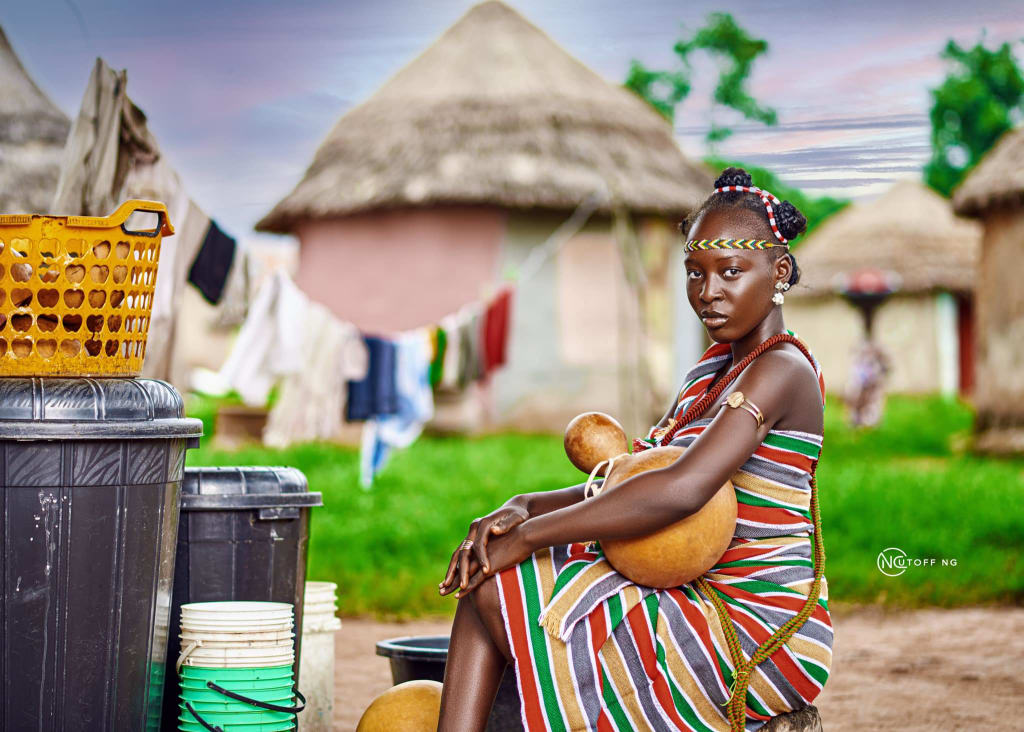Nigerian Cultures Explained
Nigeria is a diverse country with over 250 ethnic groups, each with its own unique cultural heritage.

Nigeria is a diverse country with over 250 ethnic groups, each with its own unique cultural heritage. Nigerian cultures are characterized by a rich tapestry of traditions, languages, art forms, music, dance, clothing, cuisine, and festivals. In this article, we will explore some prominent Nigerian cultures, highlighting their distinct features and contributions to the country's cultural mosaic.
One of the largest ethnic groups in Nigeria is the Yoruba, primarily located in the southwestern part of the country. The Yoruba people are known for their vibrant culture, which includes a rich mythology, traditional religion (Orisa worship), and artistic expressions such as beadwork, pottery, and textile production. The Yoruba are renowned for their traditional festivals, such as the annual Osun Osogbo Festival and the Olojo Festival, which celebrate their history, spirituality, and communal bonds.
The Igbo people, located predominantly in the southeastern region, have a diverse cultural heritage. Igbo culture is characterized by a deep appreciation for art, music, and storytelling. They are known for their masquerades, including the Mmanwu masquerade, which represents ancestral spirits and plays a significant role in cultural festivals. Igbo cuisine, with dishes like Oha soup and Jollof rice, is also popular both within Nigeria and internationally.
The Hausa-Fulani, concentrated in the northern part of Nigeria, have a rich cultural heritage deeply rooted in Islamic traditions. Hausa culture is known for its colorful traditional attire, such as the flowing gowns worn by men (Baban riga) and the intricately embroidered wrappers worn by women (Hula). The Hausa-Fulani are renowned for their vibrant music and dance forms, such as the popular traditional dance called "Durbar."
In the Niger Delta region, there are various ethnic groups, including the Ijaw, Itsekiri, and Urhobo. These groups share similarities in their cultural practices, such as fishing, farming, and a strong connection to the riverine environment. The Niger Delta region is also known for its rich artistic traditions, including mask-making, woodcarving, and the Ekpe masquerade of the Efik people. Traditional festivals like the Igue Festival of the Benin people and the New Yam Festival of the Igbo people are celebrated in this region.
The Kanuri people, based in the northeastern part of Nigeria, have a distinct cultural identity. Their culture is deeply influenced by Islam, and they are known for their traditional architecture, ornate mosques, and vibrant music and dance performances. The Borno State Cultural Festival showcases the cultural heritage of the Kanuri people, featuring traditional music, dance, and horse racing.
The Tiv people, located in central Nigeria, have a rich agricultural heritage. They are known for their terracotta sculptures, intricate beadwork, and vibrant traditional dances. The Tiv people celebrate the Yam Festival (Ikyaa), which marks the end of the farming season and is a time of thanksgiving and cultural display.
These are just a few examples of the diverse Nigerian cultures that contribute to the country's vibrant tapestry. Nigerian cultures are not static; they continue to evolve and adapt to modern influences while maintaining their core traditions and values. They play a crucial role in shaping the national identity and fostering a sense of unity among Nigeria's diverse population.
It is important to appreciate and celebrate the diverse cultural heritage of Nigeria, as it promotes understanding, tolerance, and mutual respect among different ethnic groups. Nigerian cultures are a testament to the country's rich history and the resilience and creativity of its people.
The Nigerian cultures are rich and varied, reflecting the country's history, geography, and interactions between different ethnic groups. In this discussion, we will explore some of the prominent Nigerian cultures and their distinct characteristics.
1. Hausa Culture: The Hausa people are the largest ethnic group in Nigeria, primarily residing in the northern region. Hausa culture is known for its strong Islamic influence, as most Hausa people practice Islam. The culture is marked by colorful attire, intricate embroidery, and turbans for men. Hausa music, known as "Hausa Bakwai," is popular and often accompanied by traditional instruments like the "talking drum" and "kakaki" trumpet.
2. Yoruba Culture: The Yoruba people are predominantly found in southwestern Nigeria. Yoruba culture is deeply rooted in religion, mythology, and art. Traditional Yoruba religion and worship of various deities play a significant role in their culture, although Christianity and Islam have also gained prominence. The Yoruba are renowned for their elaborate festivals, such as the Osun Osogbo festival and the Olojo festival, which showcase vibrant costumes, music, dance, and masquerades.
3. Igbo Culture: The Igbo people, located in southeastern Nigeria, have a rich cultural heritage. Igbo culture places emphasis on community and family ties. The Igbo are known for their vibrant traditional attire, which includes the "George" wrapper for men and the "Nwodo" blouse for women. Igbo music, including the "Igbo Highlife" genre, is characterized by lively rhythms and lyrics that often convey social commentary.
4. Benin Culture: The Edo people, also known as the Benin people, reside in the present-day Edo State. The Benin Kingdom, known for its historical empire, has a profound influence on the culture. The Benin people are renowned for their bronze and brass sculptures, which depict historical events and figures. Traditional festivals, such as the Igue festival, feature colorful ceremonies, dance performances, and masquerades.
5. Fulani Culture: The Fulani people, also called the Fula or Fulbe, are spread across Nigeria, particularly in the northern region. Known for their nomadic pastoralism, the Fulani have a distinctive culture. The women adorn themselves with unique hairstyles and intricate jewelry, while the men are recognized for their traditional attire, including the flowing "Boubou" robe. Fulani music, with its signature flute called "molo," is a significant aspect of their cultural expression.
6. Ibibio Culture: The Ibibio people reside in Akwa Ibom and Cross River States in southeastern Nigeria. Ibibio culture is characterized by rich folklore, oral traditions, and ceremonial rituals. The Ekpo masquerade, a prominent feature of Ibibio culture, is believed to have spiritual significance and is used to maintain order and social harmony. The Ibibio people are also known for their colorful traditional dances, such as the "Abang" and "Ekombi."
7. Kanuri Culture: The Kanuri people predominantly inhabit the northeastern part of Nigeria. Kanuri culture is influenced by Islam, and the Kanuri are known for their traditional institutions, such as the Kanem-Bornu Empire. The Borno State in Nigeria is the center of Kanuri culture, where traditional festivals like the Durbar are celebrated with horseback riding, music, and dance.
These are just a few examples of the diverse Nigerian cultures. Each ethnic group has its own languages, cuisines, traditional crafts, music, dance, and festivals, contributing to





Comments
There are no comments for this story
Be the first to respond and start the conversation.